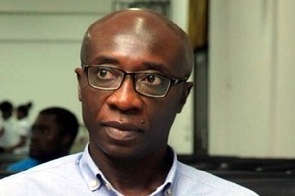An associate professor at the University of Ghana School of Law, Kwadwo Appiagyei-Atua, has stated that it is not a constitutional requirement for the government to consult parliament over its decision to deploy Ghana’s military to Niger.
According to him, despite calls from some Members of Parliament (MPs) requesting that President Nana Addo Dankwa Akufo-Addo subjects the decision over military deployment for dialogue and approval, it is at the discretion of the government to take such a decision.
Speaking in an interview with JoyNews, Prof. Kwadwo Appiahgyei-Atuah indicated that President Akufo-Addo cannot be compelled to consult parliament on whether Ghana’s military is deployed as part of the military troops for ECOWAS.
“My point is that there is no legal basis in our constitution for the government to seek support or to bring an issue to parliament, for parliament to decide whether it wants to intervene in the particular context of Nigeria. When we want to talk about such situations, we refer to Ghana's international law commitments and Article 40, Article 73, and Article 75, these are the provisions we can refer to.
"Article 40 is talking about the fact that Ghana should conduct its international relations by referring to or complying with international law, including the use of diplomacy and other means to resolve matters,” he said.
The associate professor at the University of Ghana School of Law added that the Economic Community of West African States (ECOWAS) has the legal right to embark on military intervention in its bid to curtail the menace of the coup in the West African sub-region.
“When you look at the ECOWAS Treaty, it talks about the fact that the community [ECOWAS] has zero tolerance for unconditional changes in government. It identifies four situations where there could be unconditional changes in government, one of them being a coup d'état, which is the case we have in Niger. In such a situation, the AU position is that they will not give recognition to the government that has come to power until it begins to initiate steps to return the country to constitutional rule.
"And where it does so, then before then, there will be a freeze on membership for that country in its relationship with the AU and ECOWAS. There are steps taken to return the country to constitutional rule, then we can talk about recognition de facto for the government in power. So on these two grounds, ECOWAS has the power to intervene,” he added.
The Economic Community of West African States (ECOWAS) is set to convene in Accra on Thursday, August 17, 2023, to deliberate on the final decision with regard to resolving the coup situation in Niger.
Ghana’s leading digital news platform, GhanaWeb, in conjunction with the Korle-Bu Teaching Hospital, is embarking on an aggressive campaign which is geared towards ensuring that parliament passes comprehensive legislation to guide organ harvesting, organ donation, and organ transplantation in the country.
Meanwhile, watch the latest #SayItLoud video on GhanaWeb TV with Etsey Atisu below:
You can also watch the latest episode of The Lowdown on GhanaWeb TV, as we explore the need for organ donations, below:
BS/AE
General News of Thursday, 17 August 2023
Source: www.ghanaweb.com

















